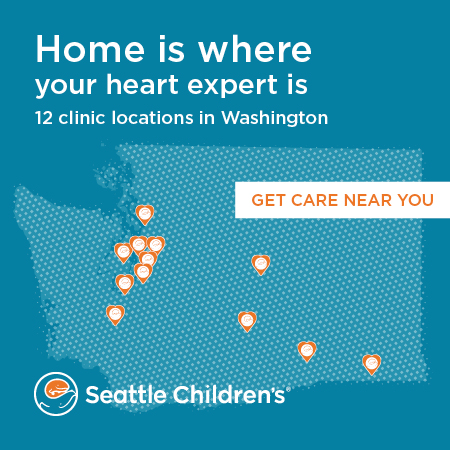Heart Failure
Contact the Heart Center
What is heart failure?
Heart failure happens when the heart can’t pump enough blood to the body’s other organs. The heart still works but not as well as it should.
What causes pediatric heart failure?
Heart failure can happen at any age and for many reasons. There are 2 main types of heart conditions that may cause heart failure in children:
- Congenital defects and other problems with the structures of the heart
- Problems with the heart muscle
Children may be born with these problems, or the problems may develop later in life.
Birth defects are the most common cause of heart failure in babies and children. Defects like aortic stenosis, hypoplastic left heart syndrome, coarctation of the aorta, ventricular septal defect, atrioventricular septal defect and others sometimes lead to heart failure. They can cause heart failure because they cause problems with blood flow into, out of, or within the heart.
Diseases of the heart muscle, such as myocarditis or cardiomyopathy, may also cause heart failure. These diseases can make the heart muscle unable to pump the way it should. Heart failure can happen if the heart beats too fast or too slow.
Heart failure may also happen after open-heart surgery to repair birth defects. This may last only for days, or it may last for months or years. In some cases, it may be permanent.
What problems can heart failure lead to?
Heart failure can lead to different problems, depending on the cause.
- If the left ventricle can’t pump well, blood flow from the heart to the body may be slow. This can make fluid back up in the lungs, causing breathing problems. It can also cause problems with other organs, like the kidneys or intestines, if they don’t get enough blood.
- If the right ventricle can’t pump well, blood flow from the heart to the lungs may be slow. This can make fluid back up in the tissues, which can appear as edema of the body or swelling of the liver.
Doctors may use the name congestive heart failure (PDF) if fluid is backing up in your child’s body and causing breathing problems, edema or other issues.
Heart Center at Seattle Children's
What are the stages of heart failure?
Doctors refer to heart failure as stage A, B, C or D based on how advanced the condition is. In the beginning stages of heart failure, there aren’t any symptoms. But the child’s heart is at risk or has started having problems that doctors can detect.
- Children at stage A are at risk for heart failure, but they don’t have any symptoms of heart failure or any signs of heart disease.
- Children at stage B don’t have any symptoms. But doctors can tell from or other tests that the heart is at risk or is not working as well as it should.
- Children at stage C have heart failure symptoms or have had symptoms in the past.
- Children at stage D have advanced heart failure. Their symptoms keep them from doing the usual things in life. They may have had to be in the hospital more than once for treatment.
What are the symptoms of heart failure?
Your child’s symptoms may depend on whether the left side, right side or both sides of the heart are affected. Some of the early symptoms of heart failure, like being tired or a little short of breath, can be hard to notice.
Heart failure symptoms in babies
These are signs and symptoms of heart failure in babies:
- Not gaining weight
- Sweating when drinking from a bottle or sleeping
- Tires easily when drinking from a bottle
- Not able to finish a bottle
- Coughs, especially when lying down
- Difficulty breathing or breathing harder and faster than normal
- Being more irritable
Heart failure symptoms in children
Young children with heart failure tend to have problems with being very tired (fatigued), even with normal activity, and looking or feeling short of breath.
Children may also have these heart failure signs and symptoms:
- Not wanting to eat much
- Stomach pain, bloating or feeling very “full”
- Not able to keep food down
- Vomiting more than 2 times in 24 hours
- Cough, especially at night
- Difficulty sleeping or lying flat
- Swelling around eyes, face or ankles
- Difficulty learning at school due to being tired
- Not able to gain weight, or may lose weight
How is heart failure diagnosed?
To diagnose this condition, your child’s doctor will examine them thoroughly. This includes using a stethoscope to listen to their heart and checking their breathing and blood pressure.
The doctor will ask for details about your child’s symptoms, their health history, and your family health history.
Chest X-rays, electrocardiography and echocardiography can provide more information about how your child’s heart looks and works.
To tell what caused your child’s heart failure, the doctor may need to do other procedures, such as an MRI (magnetic resonance imaging) of their heart or a cardiac catheterization.
How is heart failure treated in children?
Treatment for heart failure depends on the cause. Doctors use many different treatments to lower the workload of the heart. The goals are to control extra fluid and improve the heart’s ability to pump.
Doctors also try to find and treat any condition that caused the heart failure. Some children need treatments for a related condition, such as surgery to repair a heart defect or medicine for arrhythmia.
Your child may need 1 or more of these types of care:
Medicine
Our doctors are able to control many types of heart failure with medicines to help your child’s heart work better.
Diuretics help the kidneys rid the body of extra water. This lowers the amount of fluid in the lungs and improves circulation.
Other medicines are used to help the heart heal so it can function better.
Specialized care for your baby’s developing brain and nervous system
If your child was born with complex heart disease, they may be at risk for problems with how their brain and central nervous system grow and develop.
We work closely with Seattle Children’s Cardiac Neurodevelopmental Clinic to understand and meet your child’s needs. The clinic evaluates and treats babies and children with complex congenital heart defects who had heart surgery before their first birthday. We provide close follow-up during their first 3 to 5 years of life.
A visit to the Cardiac Neurodevelopmental Clinic can reassure you that everything is normal with your child’s brain and nervous system. If we find developmental issues, we help connect you with therapies that make a difference for your child.
Learn more about our Cardiac Neurodevelopmental Clinic.
Pacemaker implantation
If a slow heartbeat caused your child’s heart failure, the doctor may recommend putting in a pacemaker. Pacemakers help your child’s heart maintain a normal rate. These small, battery-operated devices are like tiny computers. Doctors place them inside your child’s chest. A tiny wire connects the pacemaker to your child’s heart.
Read about what to expect with a pacemaker.
Cardiac resynchronization therapy (CRT)
If your child’s heart failure happened because their ventricles do not beat in time with each other the way they should, the doctor may recommend CRT. It uses a special kind of pacemaker. Doctors place a small, battery-operated device under your child’s skin. Tiny wires connect the device to your child’s ventricles and signal them to work in a coordinated way.
Surgery to repair structural problems
If a birth defect caused your child’s heart failure, they may need surgery.
Many heart surgeries are done to make the flow of blood through the heart as normal as possible so a child can live a long and active life. Babies born with complex heart defects need various surgeries, sometimes over several years, for their heart to work the best that it can. Our pediatric heart surgeons use the most advanced techniques and achieve results that are among the best in the nation.
Learn more about heart surgery at Seattle Children’s.
Ventricular assist device (VAD)
Some children need more than medicines to help the heart pump. For some of these children, a VAD can help. A ventricular assist device is a mechanical pump that a surgeon places inside or outside your child’s chest. Doctors connect the pump to your child’s heart during open-heart surgery or a procedure. Because Seattle Children’s offers many types of VADs, including newer options not available at every hospital, we can choose the device that’s best for your child.
Most children who receive a VAD will be listed for a heart transplant.
Read more about VADs at Seattle Children’s.
Heart transplant
If other treatments cannot control your child’s heart problems, your child may need a heart transplant. Seattle Children’s heart transplant team does an average of 18 transplants each year in babies, children, teens and young adults through age 21.
Our transplant outcomes (survival rates) are among the best in the nation year after year. See our statistics.
Why choose Seattle Children's for heart failure treatment?
Seattle Children’s Heart Failure Program is the only one in the Pacific Northwest with the depth of expertise to offer every type of therapy for heart failure in children. We have the medical and surgical experience and the latest technology, to handle the most complex cases. Often this means we can improve a child’s heart function and quality of life and also avoid or delay a heart transplant. Each year, we provide coordinated, comprehensive care for more than 350 children with heart failure.
The heart failure experts you need are here
- The Heart Failure Program brings together many types of experts to diagnose and treat your child’s condition. They include 6 dedicated cardiologists, 7 nurse coordinators and 6 advanced practice providers. All are specialists in pediatric heart failure and cardiomyopathy. Our program also has a psychologist, a social worker, dietitians, pharmacists, interventional cardiologists, surgeons, intensivists, electrophysiologists and geneticists to help care for your child with heart failure or cardiomyopathy.
- Our team has a great deal of experience with every type of therapy your child may need. These therapies include medicines, cardiac resynchronization therapy, pacemakers, ventricular assist devices, surgery to repair heart defects and heart transplant.
- Our 4 pediatric cardiac surgeons perform more than 500 procedures yearly. Our surgical outcomes are among the best in the nation year after year.
- The transplant team does about 18 heart transplants each year for children with heart failure or other heart problems that cannot be controlled using other treatments. See our heart transplant outcomes. We publish the results of our program 2 times a year with the Scientific Registry of Transplant Recipients.
- We also have a pediatric cardiac anesthesia team and a Cardiac Intensive Care Unit ready to care for children who have heart surgery. General anesthesia is a medicine we give to people before surgery so they are fully asleep during the procedure.
- Your child’s team includes other experts from Seattle Children’s based on their needs, like neonatologists or neurodevelopmental pediatricians.
Care from before birth through young adulthood
- Seattle Children’s cardiologists see babies, children, teens and young adults with heart failure. We have experience diagnosing and treating this condition in kids of all ages.
- If your developing baby is diagnosed with a heart problem before birth, the Seattle Children’s Fetal Care and Treatment Center team works closely with you and your family to plan and prepare for any care your baby may need.
- Your child’s treatment plan is custom-made. Doctors in the Heart Failure Program will review your child’s symptoms, health history and test results to create a plan of care just for your child. We closely check your child’s needs to make sure they get the care that is right for them as they grow.
- If your child was born with a heart defect, we have a special Adult Congenital Heart Disease Program to meet their long-term healthcare needs. This program, shared with the University of Washington, transitions your child to adult care when they are ready.
Support for your whole family
- We are committed to your child’s overall health and well-being and to helping your child live a full and active life.
- Whatever types of care your child needs, we will help your family through this experience. We will discuss your child’s condition and treatment options in ways you understand and involve you in every decision.
- Our Child Life specialists know how to help children understand their illnesses and treatments in ways that make sense for their age.
- Seattle Children’s has many resources, from financial to spiritual, to support your child and your family and make your experience as smooth as possible.
- Many children and families travel to Seattle Children’s for care. We help coordinate travel and housing so you can stay focused on your child.
- Read more about the supportive care we offer.
Research to Improve Heart Failure Care
Doctors at Seattle Children’s are working to advance heart failure care and enhance the quality of life for children with this condition. We study ways to prevent, diagnose and manage heart failure so even more children thrive.
Dr. Yuk Law served as chair of the group of doctors who wrote the American Heart Association (AHA) 2021 scientific statement on the classification and diagnosis of myocarditis in children. He also served as vice chair of the group that wrote the AHA 2019 scientific statement on cardiomyopathy in children. He is on the writing group for an AHA scientific statement on heart failure in congenital heart disease and is co-chair of the writing group on transplant in congenital heart failure.
Read more about our heart failure research, or find a clinical trial.
Seattle Children’s Heart Failure Program Team
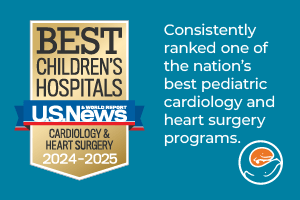 Our Heart Failure Program includes highly skilled pediatric cardiologists, pediatric heart surgeons and nurse coordinators who specialize in heart failure and cardiomyopathy. Based on your child’s needs, their team will involve other Seattle Children’s experts, such as a psychologist, a social worker, dietitians, pharmacists, interventional cardiologists, intensivists, electrophysiologists and geneticists.
Our Heart Failure Program includes highly skilled pediatric cardiologists, pediatric heart surgeons and nurse coordinators who specialize in heart failure and cardiomyopathy. Based on your child’s needs, their team will involve other Seattle Children’s experts, such as a psychologist, a social worker, dietitians, pharmacists, interventional cardiologists, intensivists, electrophysiologists and geneticists.
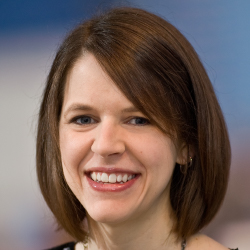

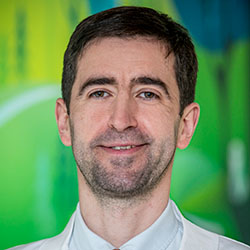

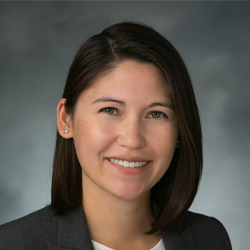

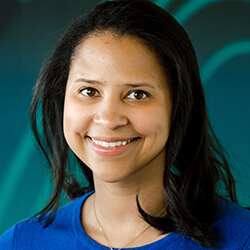

Christina Hartje-Dunn, MD
View Profile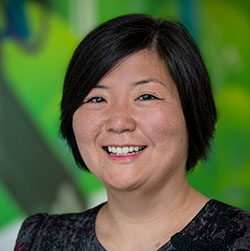

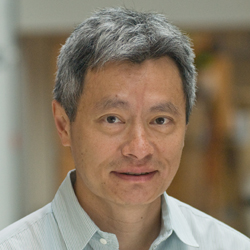

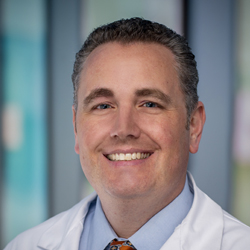

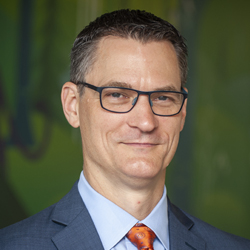

Michael McMullan, MD
Division Chief, Congenital Cardiac Surgery; Surgical Director, Cardiac Transplant; Director, Mechanical Cardiac Support and ECLS Services
View Profile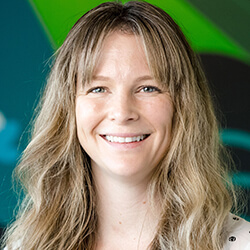

Jennifer Jean Perfect, ARNP
View Profile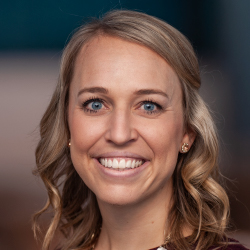

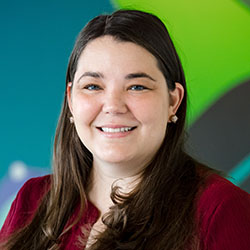

Bethany Lee Wisotzkey, MD
View ProfileContact Us
Contact the Heart Center at 206-987-2515 for an appointment, second opinion or more information.
Providers, see how to refer a patient.
Related Links
- Adult Congenital Heart Disease Program
- Cardiac Neurodevelopmental Clinic
- Extracorporeal Life Support (VAD/ECMO)
- Heart Center
- Heart Center Team
- Heart Surgery
- Heart Transplant
- Pacemaker and Defibrillator Implantation
Paying for Care
Learn about paying for care at Seattle Children’s, including insurance coverage, billing and financial assistance.

